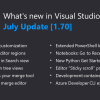
An excellent overview of why you shouldn’t be using icon fonts and should be using SVG instead. In short: Don’t be Table Guy.

An excellent overview of why you shouldn’t be using icon fonts and should be using SVG instead. In short: Don’t be Table Guy.
User experience encompasses more than just the interface. Download speed, render performance, and the cost of accessing a site are often overlooked areas when it comes to the practice of UX, but they all affect how users experience what we build on the Web.

Did you know most of the CSS gradient generation tools out there are highly inefficient? This post from Ana Tudor fills you in on why and makes some excellent recommendations for slimming down your CSS.
If you follow web components, you’ve no doubt heard of Polymer. It’s the most popular library, but the 2nd most popular is X-Tag. The project was founded at Mozilla and is backed by Microsoft too. It’s standards-based, lightweight, has a generous support matrix, and plays well with other libraries. If you’re into web components, you should check it out.

Looks like the Visual Studio Code team has been busy. There are a ton of new features in the latest update to the Atom-based text editor. Oh, and it’s open source too.

This article touches on many of the issues we will struggle with as more of the world’s population comes online. The biggest one (in my mind at least) is low/no literacy. I am hopeful that voice-based interactions (e.g. Siri, Cortana, Echo) will help with that.

The folks at Bing have put together their own mobile-friendliness test. Like the Google one, it’s a good litmus test for how you’re doing, but neither is a replacement for testing on a real device.
If you’ve ever struggled to convince someone why they should be making their site or web product accessible, Alice Bartlett has your back.

Karl nails it (as per usual):
[A]dd-on accessibility is a sham. … They fail to provide anything beyond a marginal benefit for the end user and are, at best, a band-aid over a gaping wound. … [Companies] would be better off spending their money educating their design and development staff on accessibility than wasting their money on snake oil solutions made by amateurs.

Based on the slides, this looks like it was an excellent talk from Eric Eggert. I wish I’d seen it delivered in person.